Francis Omotosho (Registrar, NAGAFF Academy)
 To be a maritime nation means that you are only surviving based on your sea/ocean, and all the ordinances of the deep sea, and what you have on the ocean. So, Nigeria has not really tapped into all these resources that we have in the deep sea and coastal areas. Thank God that we have extended our territorial zone/shared region to more than 200 nautical miles. So that will give us more opportunity to explore and revive the country. Assessing Nigeria as a maritime nation, we have not done anything so special. I’m expecting much from the Ministry of Marine and Blue Economy and NIMASA for them to dive into the ocean and do more exploration for us to achieve more.We cannot call ourselves a maritime nation. We have no vessels, we cannot lift our resources like crude oil, and we don’t have a national fleet in the country. How many private sector ship owners in Nigeria have been allowed to lift crude oil? So, as it is now, I have not seen anything to call Nigeria a maritime nation. We cannot say we have the resources as a maritime nation. Until the agencies of government who are responsible take charge and perform their duty, we don’t have anything to show at the moment.
To be a maritime nation means that you are only surviving based on your sea/ocean, and all the ordinances of the deep sea, and what you have on the ocean. So, Nigeria has not really tapped into all these resources that we have in the deep sea and coastal areas. Thank God that we have extended our territorial zone/shared region to more than 200 nautical miles. So that will give us more opportunity to explore and revive the country. Assessing Nigeria as a maritime nation, we have not done anything so special. I’m expecting much from the Ministry of Marine and Blue Economy and NIMASA for them to dive into the ocean and do more exploration for us to achieve more.We cannot call ourselves a maritime nation. We have no vessels, we cannot lift our resources like crude oil, and we don’t have a national fleet in the country. How many private sector ship owners in Nigeria have been allowed to lift crude oil? So, as it is now, I have not seen anything to call Nigeria a maritime nation. We cannot say we have the resources as a maritime nation. Until the agencies of government who are responsible take charge and perform their duty, we don’t have anything to show at the moment.
Dr Edward Sohwo (NISA Member)
 In my opinion, it’s always good to celebrate, because the World Maritime Day is set aside not only to celebrate success, but to create awareness about the maritime sector. When you do that kind of awareness, you also reflect on what you have achieved, what you are supposed to achieve, and what you can do in the future. So, for me, it’s good to celebrate it. In my opinion, we are blessed with a lot of waterfronts. I think it’s over 800 kilometers of coastline and 28 out of the 36 states are accessible by water. So, we are really blessed, but we are yet to talk about the marine potentials that God has given to us. But I think we are aware of where we are and where we are supposed to be. And I’m also sure we are also aware of why we are not where we are supposed to be. I believe the government is working towards that.
In my opinion, it’s always good to celebrate, because the World Maritime Day is set aside not only to celebrate success, but to create awareness about the maritime sector. When you do that kind of awareness, you also reflect on what you have achieved, what you are supposed to achieve, and what you can do in the future. So, for me, it’s good to celebrate it. In my opinion, we are blessed with a lot of waterfronts. I think it’s over 800 kilometers of coastline and 28 out of the 36 states are accessible by water. So, we are really blessed, but we are yet to talk about the marine potentials that God has given to us. But I think we are aware of where we are and where we are supposed to be. And I’m also sure we are also aware of why we are not where we are supposed to be. I believe the government is working towards that.
Chief Raymond Gold (National PRO, WABOTAN)
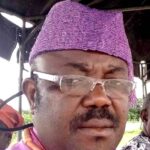 We are still far behind. There is a lot to be done. That is my personal take on it, compared with other nations considering the development of the maritime sector of other nations. We have our own needs. Well, we must also say kudos to the new administration for taking some steps. One part of such steps is to create a Marine and Blue Economy ministry. But as I said earlier, there is a lot to be done.
We are still far behind. There is a lot to be done. That is my personal take on it, compared with other nations considering the development of the maritime sector of other nations. We have our own needs. Well, we must also say kudos to the new administration for taking some steps. One part of such steps is to create a Marine and Blue Economy ministry. But as I said earlier, there is a lot to be done.
Engineer Bob Yousuo (National President, Nigerian Merchant Navy)
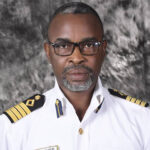 As a Maritime nation, we have not done badly but Nigeria must think outside the box by ensuring our Maritime institutions meet global standards in facilities and personnels. It is imperative that NIMASA looks inward to engaging our Master Mariners and Engineers to impact knowledge of experience as part-time lecturers in our Maritime institutions with special packages, with temporary accommodations provided for them at the institution premises. Most of them enjoyed tax payers’ money, it’s expected they give back to our society in this regard. We must improve on our certificates for global acceptance.
As a Maritime nation, we have not done badly but Nigeria must think outside the box by ensuring our Maritime institutions meet global standards in facilities and personnels. It is imperative that NIMASA looks inward to engaging our Master Mariners and Engineers to impact knowledge of experience as part-time lecturers in our Maritime institutions with special packages, with temporary accommodations provided for them at the institution premises. Most of them enjoyed tax payers’ money, it’s expected they give back to our society in this regard. We must improve on our certificates for global acceptance.
Dr. Rafiu Oladipo (Pioneer ANLCA National President)
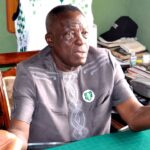 Nigeria is a hub, because Nigeria stands in an advantageous position in Africa, not just West Africa. Most of the goods that are supposed to come to Africa, in the past, come through Nigeria, before going to other countries of Africa. So, if Nigeria stands in such a position, it means the maritime industry, as far as Nigeria is concerned, is a serious sector. We have several ports in the country. So, the Nigerian maritime industry is in a viable position to say that maritime in Nigeria is big enough. Except that these days, some of these ports are not being used as they used to be. Well, we are not doing so badly, but I still believe that we can improve, to project the maritime industry in Nigeria to represent African trade. So, I will recommend a solution, or a situation, where those facilities that are supposed to be used in the various ports will be modern day facilities. Our waterways should be dredged clean enough, and positions created for these goods to come in, and out of the ports.
Nigeria is a hub, because Nigeria stands in an advantageous position in Africa, not just West Africa. Most of the goods that are supposed to come to Africa, in the past, come through Nigeria, before going to other countries of Africa. So, if Nigeria stands in such a position, it means the maritime industry, as far as Nigeria is concerned, is a serious sector. We have several ports in the country. So, the Nigerian maritime industry is in a viable position to say that maritime in Nigeria is big enough. Except that these days, some of these ports are not being used as they used to be. Well, we are not doing so badly, but I still believe that we can improve, to project the maritime industry in Nigeria to represent African trade. So, I will recommend a solution, or a situation, where those facilities that are supposed to be used in the various ports will be modern day facilities. Our waterways should be dredged clean enough, and positions created for these goods to come in, and out of the ports.
Rilwan Bello (Vice President, NAMTOP)
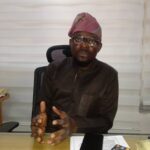 Basically, we know Nigeria is a maritime nation. In terms of geographical location, about 9 states out of the 36 have direct connection with the Atlantic Ocean. Nigeria is also one of the biggest oil producing countries and our closeness to the Atlantic Ocean is an advantage. It is also a major gateway to the world going by the strategic positioning of the ports. We appreciate all the efforts being made by NPA through strategic collaborations with stakeholders. The creation of the Marine and Blue Economy is also a great feat for Nigeria’s maritime industry.
Basically, we know Nigeria is a maritime nation. In terms of geographical location, about 9 states out of the 36 have direct connection with the Atlantic Ocean. Nigeria is also one of the biggest oil producing countries and our closeness to the Atlantic Ocean is an advantage. It is also a major gateway to the world going by the strategic positioning of the ports. We appreciate all the efforts being made by NPA through strategic collaborations with stakeholders. The creation of the Marine and Blue Economy is also a great feat for Nigeria’s maritime industry.
Festus Ukwu (National Secretary, NCMDLCA)
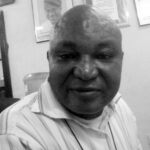 Nigeria is a maritime nation, because if you come to the country, we have several ports where goods come in from, whether at the seaports, airports, or the border stations. Anywhere from where the cargo comes into the country, it is also known as the maritime area. I think we have not done badly, but we really need to improve the state of ports and most importantly develop our inland dry ports with the necessary infrastructure and equipment for seamless cargo movement and clearance.
Nigeria is a maritime nation, because if you come to the country, we have several ports where goods come in from, whether at the seaports, airports, or the border stations. Anywhere from where the cargo comes into the country, it is also known as the maritime area. I think we have not done badly, but we really need to improve the state of ports and most importantly develop our inland dry ports with the necessary infrastructure and equipment for seamless cargo movement and clearance.
Chris Sadoh (Stars Maritime)
 Without mincing words, Nigeria indeed is a maritime Nation that is endowed with natural resources, but over the years there have been policy inconsistencies, poor funding, placing round object in a square hole, neglect of domestic institutions for foreign ones, lack of support from government, non-availability of national shipping line and of course non-availability of a functional shipping policy. The aforementioned have invariably promoted the pervasive nature of foreign domination of the industry in the carriage of our locally generated cargo against the interest of the indigenous stakeholders.
Without mincing words, Nigeria indeed is a maritime Nation that is endowed with natural resources, but over the years there have been policy inconsistencies, poor funding, placing round object in a square hole, neglect of domestic institutions for foreign ones, lack of support from government, non-availability of national shipping line and of course non-availability of a functional shipping policy. The aforementioned have invariably promoted the pervasive nature of foreign domination of the industry in the carriage of our locally generated cargo against the interest of the indigenous stakeholders.
Furthermore, lack of political will to enforce the implementation of some of the initiated government policies is a strong factor for concern and consideration.














